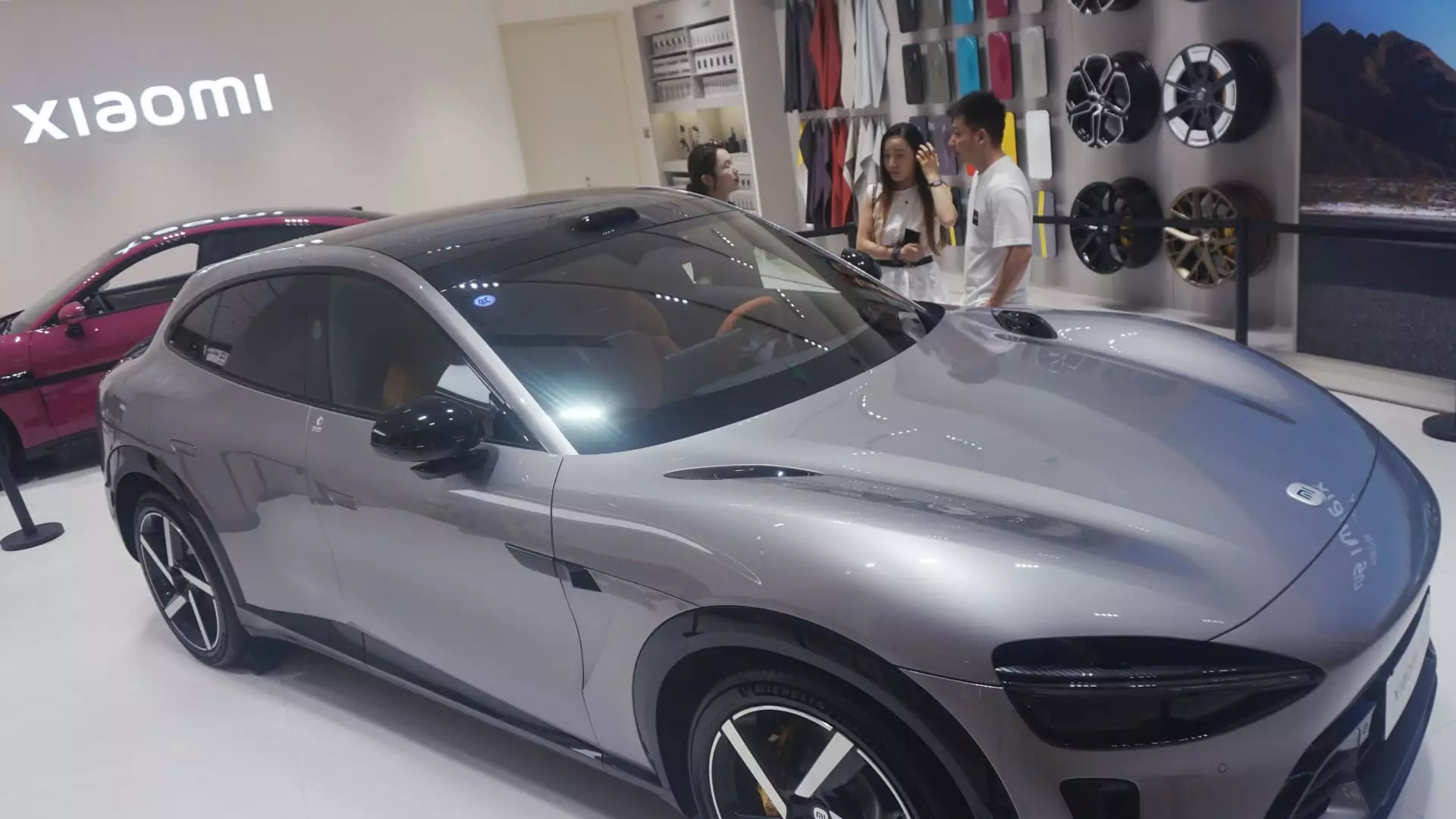The electric vehicle (EV) market is increasingly resembling a fierce battleground, with industry giants competing not just for market share but also for consumer loyalty. In this ever-evolving landscape, Chinese tech powerhouse Xiaomi is pivoting from its smartphone roots to carve a niche in the automotive industry, directly challenging Tesla, the current leader in upscale electric vehicles. The unveiling of Xiaomi’s luxury YU7 SUV, priced at 253,500 yuan (approximately $35,322), sets the stage for a significant confrontation. This pricing strategy positions the YU7 as an enticing alternative to Tesla’s Model Y, which starts at 263,500 yuan in China. As consumer interest surges, it becomes evident that Xiaomi is more than just a smartphone brand—it is a formidable contender looking to become a household name in electric vehicles.
Strategic Pricing: A Calculated Disruption
Xiaomi’s decision to undercut Tesla’s pricing by 10,000 yuan is not merely a marketing gimmick; it represents a calculated move designed to lure Tesla’s customers. Recent market analyses indicate that lower prices often translate into rapid market penetration, especially in a price-sensitive region like China. Financial forecasts suggest that Xiaomi aims to capitalize on expected monthly sales of approximately 30,000 units, leading to an ambitious target of 300,000 to 360,000 units annually. With pre-sales data revealing over 200,000 orders within just three minutes of launch, it appears that Xiaomi has successfully utilized pricing as its strategy to disrupt and redefine consumer expectations in the EV market.
Technical Ambitions: Performance Over Promises
When it comes to technological advancements, Xiaomi asserts that the YU7 outshines Tesla’s Model Y on multiple fronts. Claimed features such as a driving range of 760 kilometers (472 miles) on a single charge position it as a leader in range—an essential criterion for buyers concerned about battery sustainability. Despite falling short in driver-assist capabilities compared to Tesla’s established reputation in autonomous technology, the presence of Nvidia’s Thor chip in the YU7 ensures a promise of rich technological integration. The growing emphasis on battery length plays a pivotal role in solidifying Xiaomi’s position, suggesting that performance could be the cornerstone of its EV strategy.
AI-Driven Features: Innovating Beyond Traditional Interfaces
Xiaomi’s marketing of AI capabilities has typically played second fiddle to more aggressive competitors. However, the launch event highlighted several innovative features within the YU7 that could captivate tech-savvy consumers. From gesture controls that allow drivers to change music without touching their devices, to an app that indicates the vehicle’s parked location, these enhancements reflect a shift towards AI-driven engagement. Activities that were once cumbersome are now seamless, potentially putting the YU7 ahead of Tesla in user-friendliness despite ongoing competition. Moreover, compatibility with systems like Apple CarPlay and Apple Music broadens its appeal, especially in a market inundated with Apple enthusiasts.
Expanding the Ecosystem: A Vision beyond Vehicles
Xiaomi’s ambitions aren’t confined to just automobiles; the company is unveiling an entire ecosystem around its branding. The recent launch of AI-connected glasses illustrates how Xiaomi plans to merge its smartphone dominance with innovations across various tech fronts. Such coherent branding strengthens customer retention and expands usage scenarios for existing Xiaomi products. In a world where integrated technology becomes paramount, Xiaomi’s approach reflects an understanding of lifestyle needs—positioning the YU7 not just as a vehicle, but as part of a broader digital experience.
Confronting Challenges: The Price War Escalates
While Xiaomi is reveling in this newfound momentum, the reality remains that the EV market is rife with competitors and regulatory challenges. The ongoing price war will test Xiaomi’s resolve and strategy. The company has carved out a substantial first move, but as rivals like Tesla and newer entrants respond, the question remains whether Xiaomi can keep pace while maintaining quality and innovation. Ultimately, the success of the YU7 will hinge not only on initial sales but on the company’s ability to create a sustainable and flexible supply chain, especially as global pressures on EV production continue to mount.
The launch of the YU7 SUV signifies more than just a new entrant in the vehicle market; it reflects Xiaomi’s bold vision for ambitious growth. In a contest where the stakes are high, Xiaomi is banking on a combination of pricing strategy, innovative technology, and an integrated ecosystem to challenge the prevailing order in the electric vehicle landscape.

